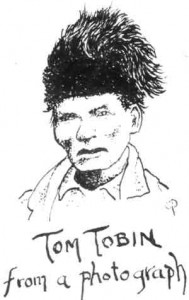Brief by Central Staff
Utes – November 2008 – Colorado Central Magazine
It has taken a while, more than 130 years, but the Utes have regained some hunting rights they were promised in an 1874 treaty, and the Colorado Division of Wildlife has reached an agreement with the tribe about wildlife management and enforcement in the treaty area.
The saga starts, more or less, in 1868 when the Utes agreed to a reservation roughly described as the western third of Colorado. Then miners started pouring into the San Juans.
Chief Ouray asked the federal government to send in the army to evict the trespassing miners, as was required by treaty. President Ulysses S. Grant gave the appropriate orders, but Samuel H. Elbert, Colorado’s territorial governor, asked Grant to hold off in the hope that a new arrangement could be forced upon the Utes. Elbert’s successful plea so impressed the prospectors at Twin Lakes that they named a nearby peak for him — one that turned out to be the highest in Colorado.
Felix Brunot, U.S. Commissioner of Indian Affairs, along with a host of other officials and tribal members, met in August of 1873 at the Los Pios Agency west of Saguache. The agreement, which became known as the Brunot Treaty, promised the Utes $25,000 a year (with Chief Ouray getting another $1,000 a year). In return, the miners would get a chunk of territory, 90 by 60 miles covering the heart of the San Juan Mountains. However, the Utes would retain hunting rights “so long as the game lasts and the Indians are at peace with the white people.”
The Brunot area’s boundaries are roughly U.S. 160 on the south, the southern boundaries of Gunnison and Montrose counties on the north, just west of Cortez on the west, and the middle of Mineral County on the east.
The Colorado Division of Wildlife and the Utes have negotiated a Memorandum of Understanding (MOU) about hunting in the area. Two Ute tribes are involved — the Southern, based in Ignacio, and the Mountain, based in Towaoc.
In general, tribes will grant hunting licenses to members who want one, and their seasons and limits may be somewhat different. Tribal hunting rights cannot be transferred to non-members. Private land in the Brunot area will not be affected — permission will be required, no matter what kind of license.
Both the Mountain and Southern Utes have professional game management programs on their reservations, and it’s not likely that there will be a horde of Ute hunters. Of the 1,431 members of the Southern Utes, for instance, on average, only 225 get licenses for hunting elk and deer on the reservation.

